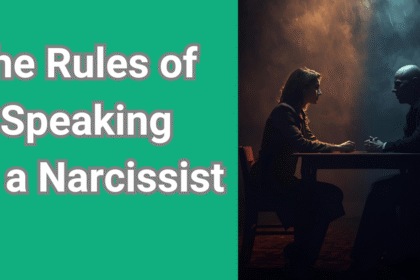Learning how to talk to a narcissistic parent is like learning to navigate through a psychological minefield while blindfolded—until someone teaches you where the mines are buried and gives you a detailed map. After seven years of guiding adult children through these treacherous conversations, I want to be that guide for you today.
- Why Everything You’ve Been Taught About How to Talk to a Narcissistic Parent Is Wrong
- The Foundation of How to Talk to a Narcissistic Parent: Understanding Their Operating System
- How to Talk to a Narcissistic Parent: The GRAY Rock Method Adapted
- Advanced Techniques: How to Talk to a Narcissistic Parent About Boundaries
- How to Talk to a Narcissistic Parent During Crisis Situations
- Common Mistakes When Learning How to Talk to a Narcissistic Parent
- Frequently Asked Questions About How to Talk to a Narcissistic Parent
Think about this for a moment: every time your parent’s name appears on your phone, does your stomach clench? Do you find yourself mentally rehearsing what you’ll say, trying to predict how they might react? That physical response you’re experiencing is your nervous system recognizing that normal conversation rules don’t apply here.
Your body has learned what your mind is still trying to process—that talking with a narcissistic parent requires completely different skills than communicating with emotionally healthy people.
Let me teach you why traditional communication advice fails so spectacularly with narcissistic parents, and more importantly, what actually works to protect your mental health while maintaining necessary contact.
Why Everything You’ve Been Taught About How to Talk to a Narcissistic Parent Is Wrong
Imagine you’re trying to play chess, but your opponent is playing checkers and changing the rules every time they’re losing. This perfectly captures what happens when you try to use normal communication strategies with a narcissistic parent.
You’re operating from principles of mutual respect, genuine problem-solving, and emotional connection, while they’re operating from principles of control, emotional regulation, and superiority maintenance.
Most communication advice assumes both parties want to understand each other and find solutions. With narcissistic parents, this assumption creates the foundation for your frustration and failure. They’re not communicating to connect with you or resolve issues. They’re communicating to maintain their internal emotional balance, extract validation, and ensure their version of reality remains unchallenged.
Consider what happens when you follow conventional wisdom like “express your feelings honestly” or “use I statements to avoid blame.” With a narcissistic parent, expressing vulnerability often hands them emotional ammunition they’ll use against you later. Your honest feelings become evidence of how “sensitive” or “dramatic” you are. Your attempts at non-confrontational communication are interpreted as opportunities to lecture you about your shortcomings.
This isn’t because you’re doing it wrong. It’s because you’re using tools designed for building bridges with someone who’s determined to remain on their side of the river while controlling access to the bridge.
The Foundation of How to Talk to a Narcissistic Parent: Understanding Their Operating System
Before learning specific techniques, you need to understand how a narcissistic parent’s mind processes information during conversations. Picture their brain as an older computer running three programs simultaneously: threat detection software, admiration scanning, and control maintenance.
The threat detection program automatically interprets any disagreement, boundary, or independent thought as a personal attack. This means when you say, “I’ve decided to spend Christmas with my partner’s family this year,” their internal system immediately translates this as “My child is rejecting me and questioning my authority.” Understanding this helps explain why seemingly innocent statements trigger such disproportionate reactions.
The admiration scanning program constantly searches for validation and praise while cataloging any perceived slights or insufficient enthusiasm. This explains why conversations often feel like performance evaluations where you’re being graded on your level of agreement and appreciation. They’re not just listening to your words—they’re measuring your tone, facial expressions, and body language for signs of adequate reverence.
The control maintenance program works to ensure they remain the authority in all family dynamics. This is why they might ask about your life not out of genuine interest, but to gather information they can later use to offer unsolicited advice, criticism, or subtle manipulation. They’re not connecting with you—they’re conducting reconnaissance.
How to Talk to a Narcissistic Parent: The GRAY Rock Method Adapted
The GRAY Rock technique, adapted specifically for parent relationships, becomes your primary communication strategy. Think of yourself as becoming emotionally uninteresting—like a gray rock sitting by a river. The water (their emotional manipulation) flows over and around you, but it doesn’t change your essential nature or carry you away.
When applying this method to learn how to talk to a narcissistic parent, you’ll practice three core principles: minimal information sharing, emotional neutrality, and strategic redirection. Instead of the detailed sharing that characterizes healthy family relationships, you’ll learn to give responses that are polite but reveal nothing they can weaponize.
For example, when they ask about your relationship, instead of sharing your excitement about a vacation you’re planning or concerns you’re working through, you’ll respond with neutral statements like “Things are good” or “We’re doing well.” This isn’t about being secretive or punitive—it’s about recognizing that personal information in the hands of a narcissistic parent often becomes ammunition for future attacks.
Emotional neutrality means training yourself to respond to their provocations with calm detachment. When they criticize your career choices, your parenting, or your life decisions, you’ll learn phrases like “That’s an interesting perspective” or “I can see you have strong feelings about this” that acknowledge their statement without agreeing or defending yourself.
Advanced Techniques: How to Talk to a Narcissistic Parent About Boundaries
Setting boundaries with narcissistic parents requires a completely different approach than boundary-setting with emotionally healthy people. With healthy individuals, you can explain your reasoning, expect empathy for your position, and trust they’ll respect your limits once they understand them. Narcissistic parents view boundaries as challenges to their authority that must be defeated.
The key is to present boundaries as unchangeable facts rather than negotiable requests. Instead of saying “I would appreciate it if you didn’t criticize my husband,” which invites debate about whether your husband deserves criticism, you’ll say “I don’t discuss my marriage with anyone.” This statement offers nothing to argue against because it’s presented as a universal policy rather than a specific complaint about their behavior.
When they push back against your boundaries—and they will—your job is not to justify or explain further. You’ll simply repeat the boundary using slightly different words. If they continue pressing, you’ll implement a pre-planned consequence like ending the conversation or leaving their home. The boundary isn’t effective until you’ve demonstrated you’ll enforce it consistently.
This approach often feels harsh to adult children who genuinely love their parents and hope for closer relationships. Understanding that enforcing boundaries actually creates the possibility for whatever healthy interaction is possible with a narcissistic parent helps ease this internal conflict. Without boundaries, the relationship deteriorates into a pattern of emotional abuse disguised as normal family dynamics.
How to Talk to a Narcissistic Parent During Crisis Situations
Crisis conversations require special protocols because narcissistic parents often use emergencies as opportunities to reassert control and extract emotional reactions. Whether the crisis involves their health, family finances, or relationship problems, they may unconsciously escalate the drama to ensure they receive maximum attention and concern.
Your approach during these situations involves separating the practical problem from the emotional manipulation. Focus exclusively on gathering necessary information and offering appropriate help while refusing to engage with the emotional theatrics. When they describe their medical symptoms, for instance, you’ll ask specific questions about doctors’ appointments and treatment plans while ignoring their dramatic interpretations of what this means for their future.
For specific phrases that work during these heated moments, learning 50 phrases to disarm a narcissist can provide you with exact scripts to use when emotions are running high and you need immediate verbal tools to de-escalate the situation.
This doesn’t mean becoming cold or uncaring. It means recognizing that your emotional energy is better invested in practical support rather than feeding their need for crisis-related attention. You can care deeply about their wellbeing while refusing to participate in the emotional drama they often create around legitimate problems.
Common Mistakes When Learning How to Talk to a Narcissistic Parent
The most frequent error adult children make is continuing to hope their narcissistic parent will eventually see their perspective and validate their feelings. This hope keeps them trapped in cycles of over-explaining, defending, and trying to prove their worth through conversation. Learning to abandon this hope isn’t about giving up on the relationship—it’s about accepting the relationship’s actual limitations so you can work within them.
If you find yourself still wondering whether your parent might change with the right approach or enough patience, understanding will a narcissist change can help you process these hopes in a more realistic framework that protects your emotional energy.
Another common mistake is taking their criticisms and attacks personally. When a narcissistic parent says hurtful things during conversation, they’re usually expressing their own internal emotional state rather than accurate assessments of you. Their criticism tells you more about their psychology than your reality. Developing the ability to hear their words while remaining internally detached from their emotional content becomes crucial for your psychological protection.
Many adult children also err by trying to teach their narcissistic parent better communication skills during conversations. They’ll point out logical inconsistencies, highlight emotional manipulation, or attempt to model healthier interaction patterns. These teaching moments invariably backfire because narcissistic parents interpret them as challenges to their authority. Your job isn’t to improve their communication—it’s to protect yourself while maintaining necessary contact.
If you’re still questioning whether what you experienced growing up truly constituted narcissistic abuse, my Narcissistic Abuse Clarity Report can help you understand manipulation patterns you may have normalized. For those situations where you can’t limit contact due to caregiving responsibilities or other obligations, my guide “How to Survive When You Can’t Leave Yet” offers specific strategies for psychological protection during ongoing contact.
Remember, learning how to talk to a narcissistic parent is ultimately about creating safety for yourself while honoring whatever relationship obligations you choose to maintain. These conversations will never feel natural or emotionally fulfilling in the way healthy family communication does. But they can become manageable interactions that don’t devastate your emotional wellbeing when you understand the underlying psychology and apply appropriate techniques.
Your mental health and emotional stability matter. Every boundary you set, every manipulation you refuse to engage with, and every technique you master to protect yourself during these conversations is an investment in your overall wellbeing and your ability to build healthier relationships in other areas of your life.
Frequently Asked Questions About How to Talk to a Narcissistic Parent
The key is understanding that narcissistic parents often start arguments to maintain control and emotional regulation. Avoid defending yourself or trying to prove your point, which feeds into their need for conflict. Instead, use phrases like “I understand you feel that way” or “That’s certainly one perspective” before redirecting the conversation or disengaging entirely.
Never share vulnerable information they can use against you later, never directly criticize their parenting, and never try to make them understand how their behavior affects you. Avoid phrases like “You always…” or “You never…” as these trigger their defensive systems. Also avoid asking “Why do you…” questions, which they’ll interpret as attacks on their character.
Present boundaries as unchangeable policies rather than requests. Say “I don’t discuss my marriage with anyone” instead of “Please don’t criticize my spouse.” Prepare consequences in advance and implement them immediately when boundaries are crossed. Remember that explaining your reasoning gives them ammunition to argue against your limits.
Traditional heart-to-heart conversations aren’t possible because narcissistic parents lack the empathy and emotional regulation required for mutual understanding. However, you can have functional conversations focused on practical matters, shared activities, or neutral topics. The goal shifts from connection to peaceful coexistence.
Keep conversations brief and purpose-driven. Fifteen to thirty minutes is usually optimal, as longer conversations provide more opportunities for manipulation and emotional exhaustion. Have a planned exit strategy, such as “I need to start dinner now” or “I have another call coming in.”





